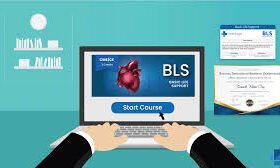In the realm of healthcare, the role of a direct care provider stands as a cornerstone in ensuring patients receive quality and compassionate care. Direct care providers, often referred to as direct support professionals (DSPs) or caregivers, play a vital role in various settings such as hospitals, nursing homes, assisted living facilities, and home care.
Their responsibilities encompass a broad spectrum of tasks, ranging from assisting with daily activities to providing emotional support and advocating for the well-being of those under their care. In this article, we delve into the intricate responsibilities of a direct care provider, shedding light on the essential elements that define this noble profession.
Personal Care Assistance
At the heart of a direct care provider’s responsibilities lies the task of assisting individuals with their personal care needs. This includes tasks such as bathing, dressing, grooming, and feeding for those who may have difficulty performing.
These activities independently due to illness, disability, or age-related limitations. Maintaining the dignity and respect of the individuals they care for is paramount, requiring sensitivity and empathy in every interaction.
Medication Management
Direct care providers often play a crucial role in medication management, ensuring that individuals take their prescribed medications at the correct times and in the appropriate doses. This responsibility demands meticulous attention to detail, as errors in medication administration can have serious consequences.
Furthermore, they may be tasked with monitoring and documenting any side effects or changes in the individual’s condition, communicating this information to healthcare professionals as necessary.
Health Monitoring and Reporting
In addition to medication management, direct care providers are responsible for monitoring the health status of those under their care. This may involve taking vital signs, such as blood pressure, pulse, and temperature, and keeping track of any fluctuations or abnormalities.
Recognizing signs of distress or deterioration in the individual’s condition is crucial, prompting timely intervention or medical attention when needed. Moreover, maintaining accurate and detailed records of health-related observations is essential for continuity of care and collaboration with other healthcare team members.
Mobility Assistance and Transfers
Many individuals requiring direct care assistance may have limited mobility or physical disabilities, necessitating assistance with moving and transferring from one place to another. Direct care providers are trained in safe lifting and transfer techniques to prevent injury to both themselves and the individuals they care for.
Whether it’s helping someone out of bed, into a wheelchair, or assisting with ambulation, ensuring proper body mechanics and using assistive devices as needed are integral parts of their role.
Emotional Support and Companionship
Beyond the physical aspects of care, direct care providers offer invaluable emotional support and companionship to those they serve. Building trusting relationships based on empathy, compassion, and respect is central to their role.
They provide a listening ear, offer encouragement, and engage individuals in meaningful activities to promote socialization and overall well-being. This aspect of care is particularly important for individuals facing isolation or loneliness, fostering a sense of connection and belonging.
Advocacy and Empowerment
Direct care providers serve as advocates for the rights and preferences of the individuals under their care, empowering them to make informed decisions about their lives and healthcare.
This may involve advocating for access to necessary resources and services, supporting individuals in expressing their needs and preferences, and safeguarding their autonomy and dignity. Advocacy also extends to ensuring that individuals are treated with fairness and respect, free from discrimination or neglect.
Crisis Management and Emergency Response
In times of crisis or emergency, direct care providers must remain calm, composed, and prepared to take swift and appropriate action. Whether it’s responding to a medical emergency, natural disaster, or behavioral crisis, having completed a course for first aid in Toronto equips them with essential skills and knowledge.
They are trained to prioritize safety and address the needs of those in distress. This may involve administering first aid, contacting emergency services, or implementing crisis intervention techniques to de-escalate tense situations.
Communication and Collaboration
Effective communication and collaboration are essential skills for direct care providers, enabling them to work cohesively with individuals, families, and interdisciplinary healthcare teams.
They must be able to convey information clearly and accurately, listen attentively to the concerns and preferences of those they care for, and communicate effectively with colleagues to ensure continuity of care. Collaboration may involve coordinating care plans, participating in care conferences, and sharing relevant information to facilitate informed decision-making.
Continuing Education and Professional Development
As healthcare evolves and advances, direct care providers must continually seek opportunities for learning and professional development to enhance their knowledge and skills.
This may involve attending training sessions, workshops, or pursuing further education in specialized areas of care. Staying abreast of best practices, emerging trends, and technological advancements in healthcare not only benefits the individuals they serve but also enhances the quality of care they provide.
Conclusion
In conclusion, the responsibilities of a direct care provider encompass a multifaceted array of tasks aimed at promoting the health, safety, and well-being of those under their care. From assisting with personal care needs to offering emotional support, advocating for individuals’ rights, and collaborating with healthcare teams.
Their contributions are invaluable in enhancing the quality of life for vulnerable populations. By understanding and embracing these responsibilities with dedication, compassion, and professionalism, direct care providers uphold the principles of person-centered care and make a profound difference in the lives of others.















Leave a Reply